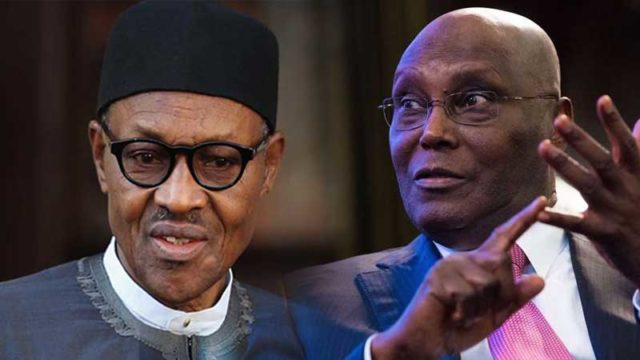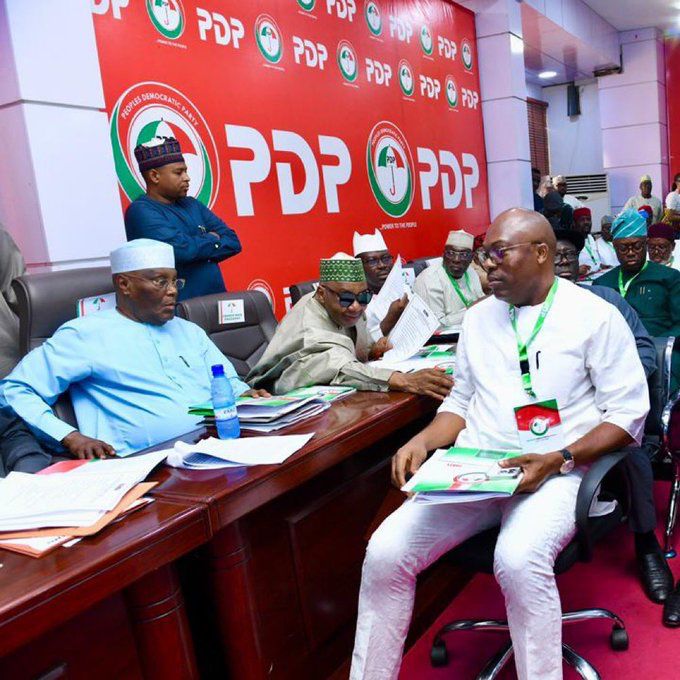The national and state elections due to begin in Nigeria on March 28th are likely to be the closest and most fiercely contested since the restoration of democracy in Africa’s most populous nation in 1999. There is a lack of confidence in the poll organisers, concern about the volatile environment in which voting will take place and anxiety about the undemocratic and belligerent tendencies of Nigerian politicians. It is virtually impossible to envisage an outcome to the election period that does not involve significant instability. Although we think Nigeria will just about negotiate the election period without a complete breakdown in security, there is a real possibility that the instability will be serious enough to break Nigeria’s democracy, or even split the country apart.
The run-up to the vote has been intense with provocative campaigning by politicians in both the ruling People’s Democratic Party (PDP) and the main opposition, the All Progressives Congress (APC). Cause for concern has also come from the poor preparation by the Independent National Election Commission (INEC) for the crucial polls, which has undermined public confidence in the state agency’s ability to conduct smooth and fair voting in presidential and National Assembly polls on March 28th, followed by governorship and state assembly ballots on April 11th. A six-week postponement of the elections, announced a week before the original February 14th start date, stemmed from security concerns, particularly the Islamist insurgency in the north-east, and also INEC’s failure to distribute sufficient numbers of electoral cards to voters on time. The unease and apprehension has also affected the financial markets where share prices have been subdued and the Nigerian currency, the naira, has taken a battering as investors feel nervous about the impact of the ensuing power struggle on the stability of Africa’s largest economy.
Election-related instability is not a new phenomenon
Pre-elections jitters are not new in Nigeria. Virtually every major election in the country since independence from the UK in 1960 was preceded by some level of political turmoil, often owing to grandstanding by rent-seeking politicians. Furthermore, the nation’s electoral agency has on most voting occasions shown an incredible lack of preparedness, which in 2011 resulted in a week-long postponement of the polls, announced on the day voting was supposed to start. In addition, the aftermath of every major election has featured allegations of rigging and fraud, as well as some violence, which led to military coups in 1966 and 1983; and rioting that cost hundreds of lives in 2011.
Despite the drama and mayhem that have accompanied the four general elections held so far under the Fourth Republic, this current period of civilian governance has survived and arguably become more resilient and adept at weathering political storms. Indeed, this 15-year-old civilian republic has lasted longer than the preceding spell of army rule, although overall Nigeria has still been under military rule for more years than it has enjoyed democracy.
The stakes are higher than usual
Nonetheless, a number of factors make this year’s elections riskier than previous ones. This is the first time that the ruling party, which has won every presidential vote since 1999, faces an opposition that has broad support and reasonable prospects of victory. PDP candidates easily won past presidential contests, largely because they faced challengers who lacked broad support across Nigeria’s diverse ethnic and regional groupings. However, a former military ruler, Muhammadu Buhari, the candidate of the APC making his fourth consecutive attempt at the presidency, should this time benefit from the wider support of a party created in 2013 from a merger of three main opposition parties, with the prime purpose of wresting power from the PDP. Mr Buhari, a northern Muslim, took 32% of the overall vote in 2011, sweeping the largely Muslim north-west and north-east but performing poorly in the predominately Christian south. On March 28th the 72‑year‑old retired general is likely to do well in the south-west, a stronghold of one of the parties that make-up the APC, and do better in parts of the south-east. As for the 57‑year‑old president, Goodluck Jonathan, a southern Christian who won 59% of the 2011 vote, he is likely to once again get the support of his kinsmen in the oil-producing south and probably maintain strong performances in the south-east and in the ethnically mixed north-central zones. However, it is unclear to what extent the emergence of the APC alliance will erode his support in south-west, where in the past many voters have opted for opposition candidates in state elections while casting for the ruling party in the presidential ballot.
As with the 2011 elections, the 2015 polls are taking place against the background of the insurgency of Boko Haram, a Sunni Islamist fundamentalist group seeking to carve out an Islamic state in northern Nigeria. But the group has become stronger and poses a greater threat to democracy than it did four years ago. The mayhem it has caused in the north-east, including capturing several towns and villages, has raised doubts about the possibility of holding free elections in the worst-affected parts of the north-east. Since the postponement of the polls in mid-February, the Nigerian military, with the assistance of troops from Niger, Cameroon and Chad, have pushed to retake most of the territories under the militants’ control. Nonetheless, the security situation in the region remains precarious, with militants probably still able to strike with guerrilla attacks during the elections and to exacerbate any post-election violence in the country.
Neither side will willingly concede defeat
The flipside of concerns about Boko Haram and fears of a repeat of rioting in the north if Mr Buhari loses on March 28th is worry about a resurgence of ethnic nationalist militancy in the oil-producing Niger Delta if Mr Jonathan is defeated. Militants, who waged armed struggles for local control of mineral resources up until 2009, have threatened to resume their insurgency in the event of a Buhari presidency. Threats made by hardliners on both sides of the political divide to unleash catastrophe if their side loses is probably mostly sabre rattling that has come to be associated with election seasons in Nigeria. Nonetheless, the stakes are high. If Mr Buhari suffers a fourth presidential election defeat, he will probably not get another chance to achieve his ambition of returning to power through the ballot box. The retired general’s supporters will be less likely to accept defeat graciously if, as widely expected, the results of his latest bid for power are close, even if the courts back the PDP victory. On the other hand, if Mr Jonathan is defeated, Nigeria may enter uncharted territory, in which the ruling party, still in control of the state security apparatus, disputes the outcome of the presidential election.
There is not a feasible scenario in which Nigeria avoids significant post-election unrest. The question is over the magnitude of that unrest. Nigeria has shown a high threshold for remaining intact through previous periods of significant instability and this will probably remain true this time. However, the risk of a more substantial breakdown—precipitating a period of ungovernability, a coup or even civil war—are the highest of any time since the return to civilian rule in 1999.

 News6 years ago
News6 years ago
 Featured6 years ago
Featured6 years ago
 Boss Picks6 years ago
Boss Picks6 years ago
 Headline6 years ago
Headline6 years ago
 Headline5 years ago
Headline5 years ago
 Headline6 years ago
Headline6 years ago
 Headline6 years ago
Headline6 years ago
 Headline6 years ago
Headline6 years ago













